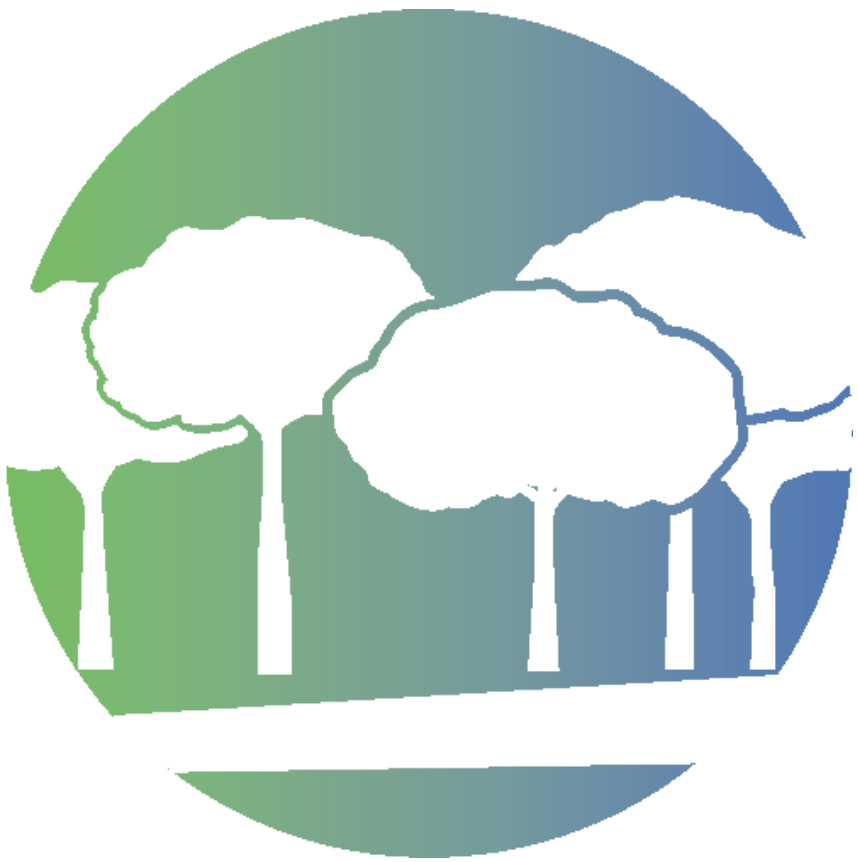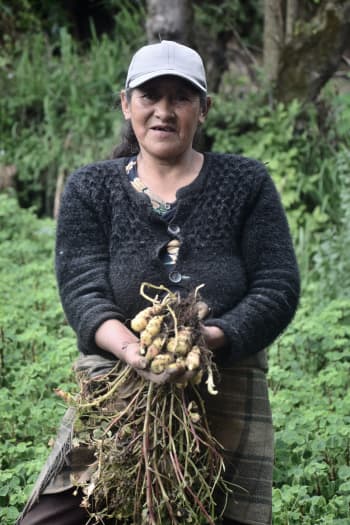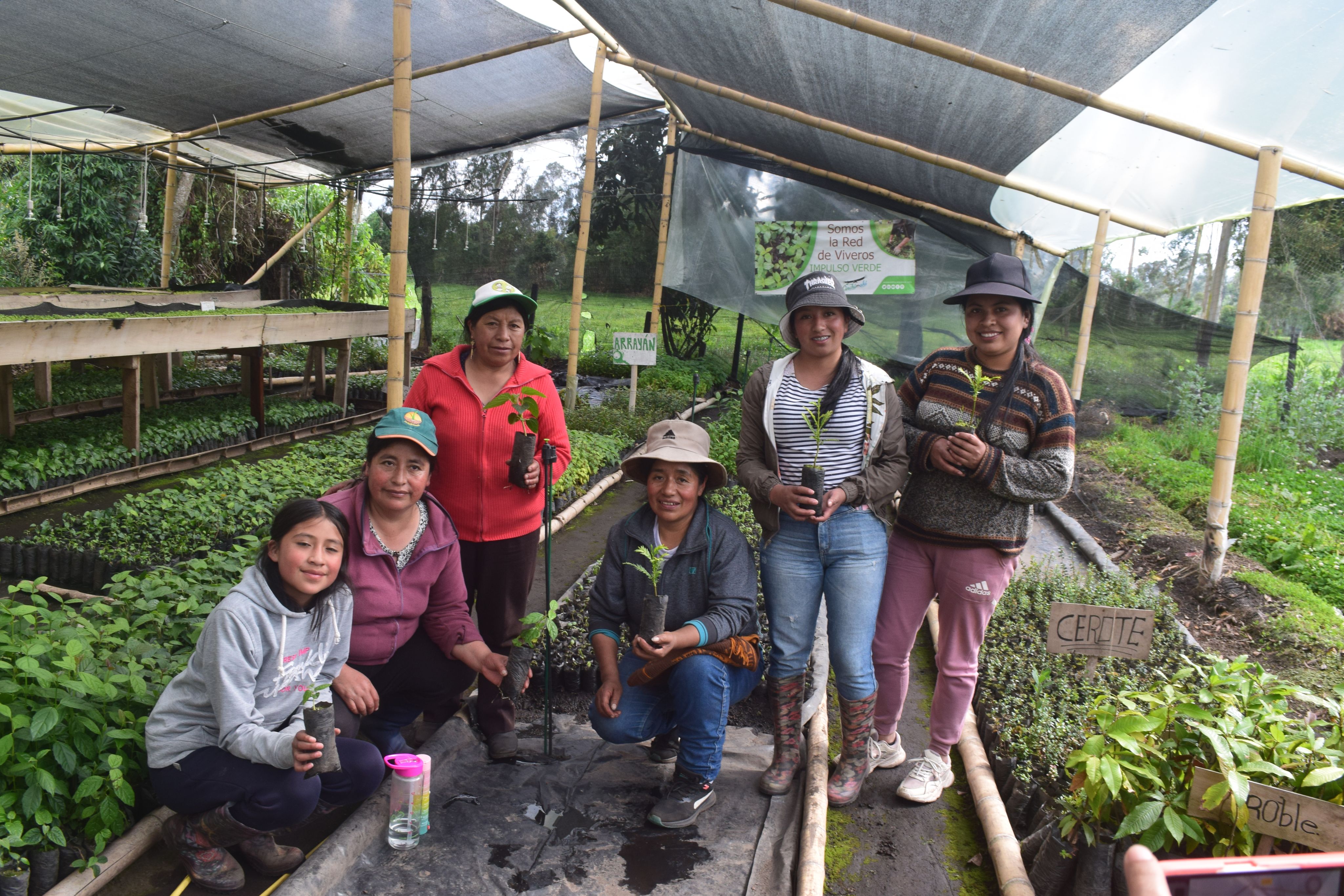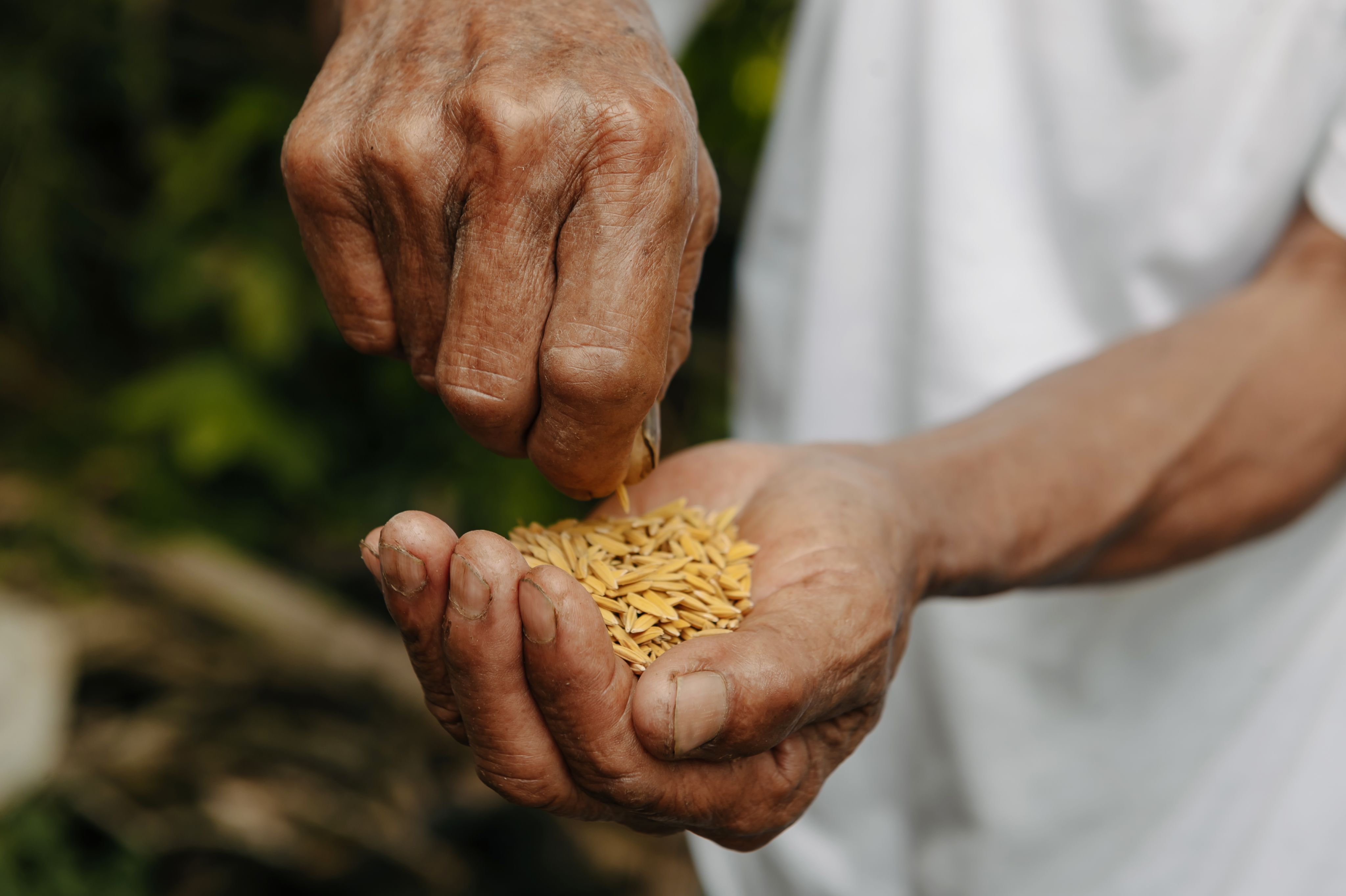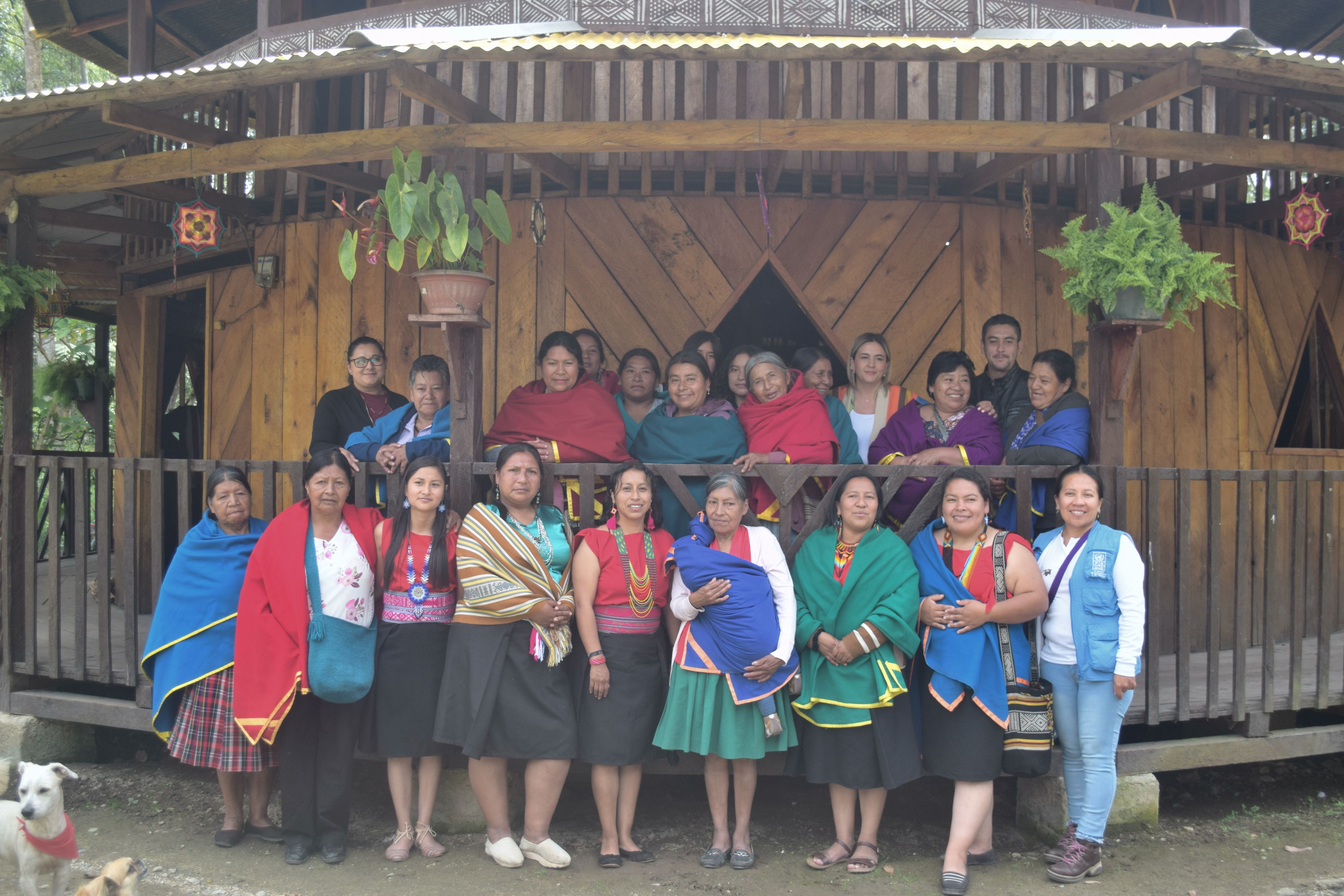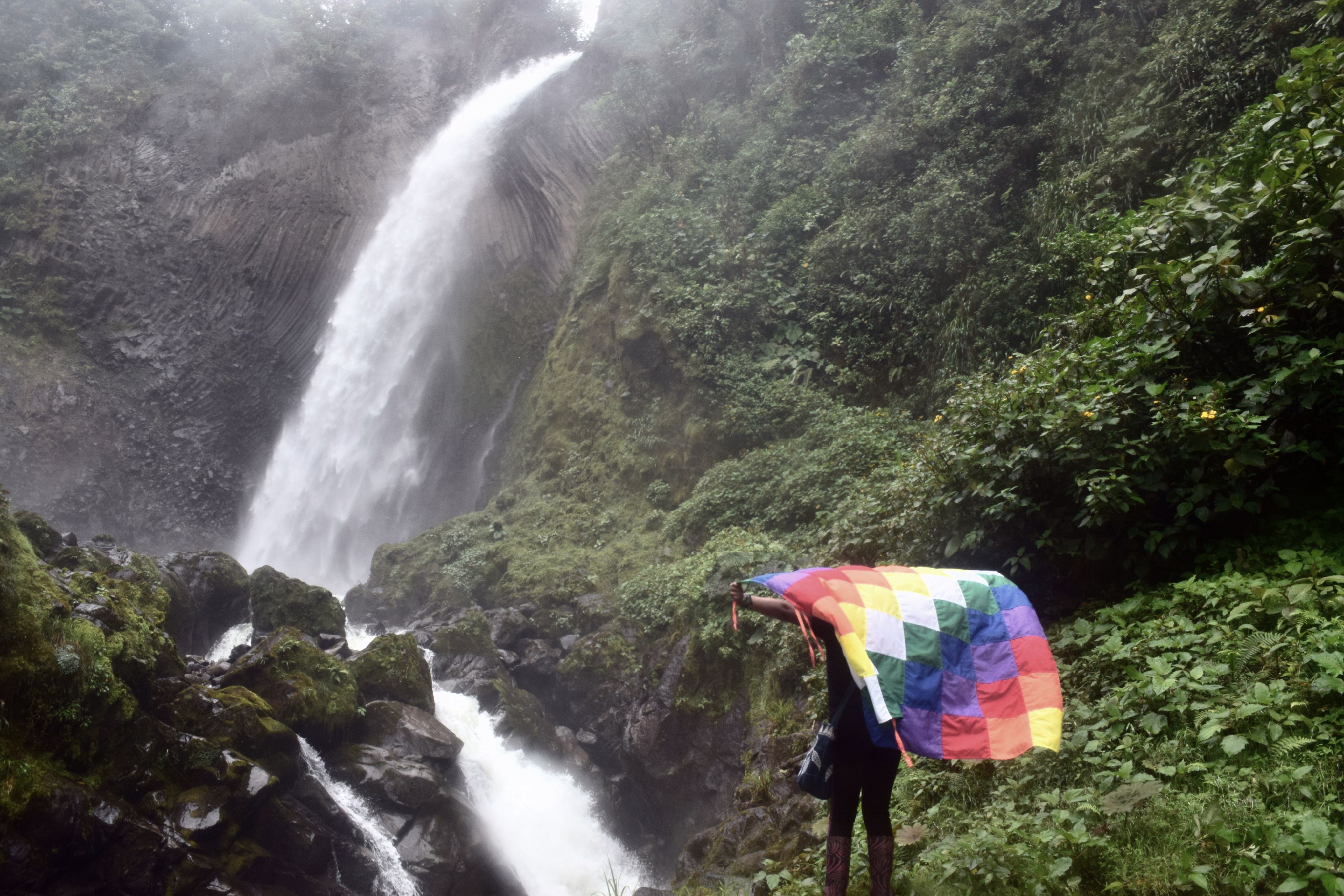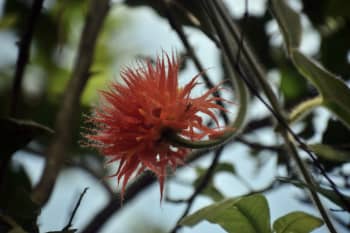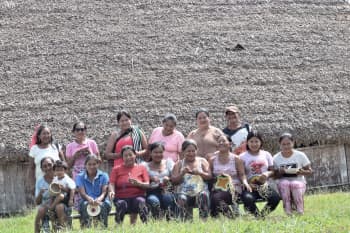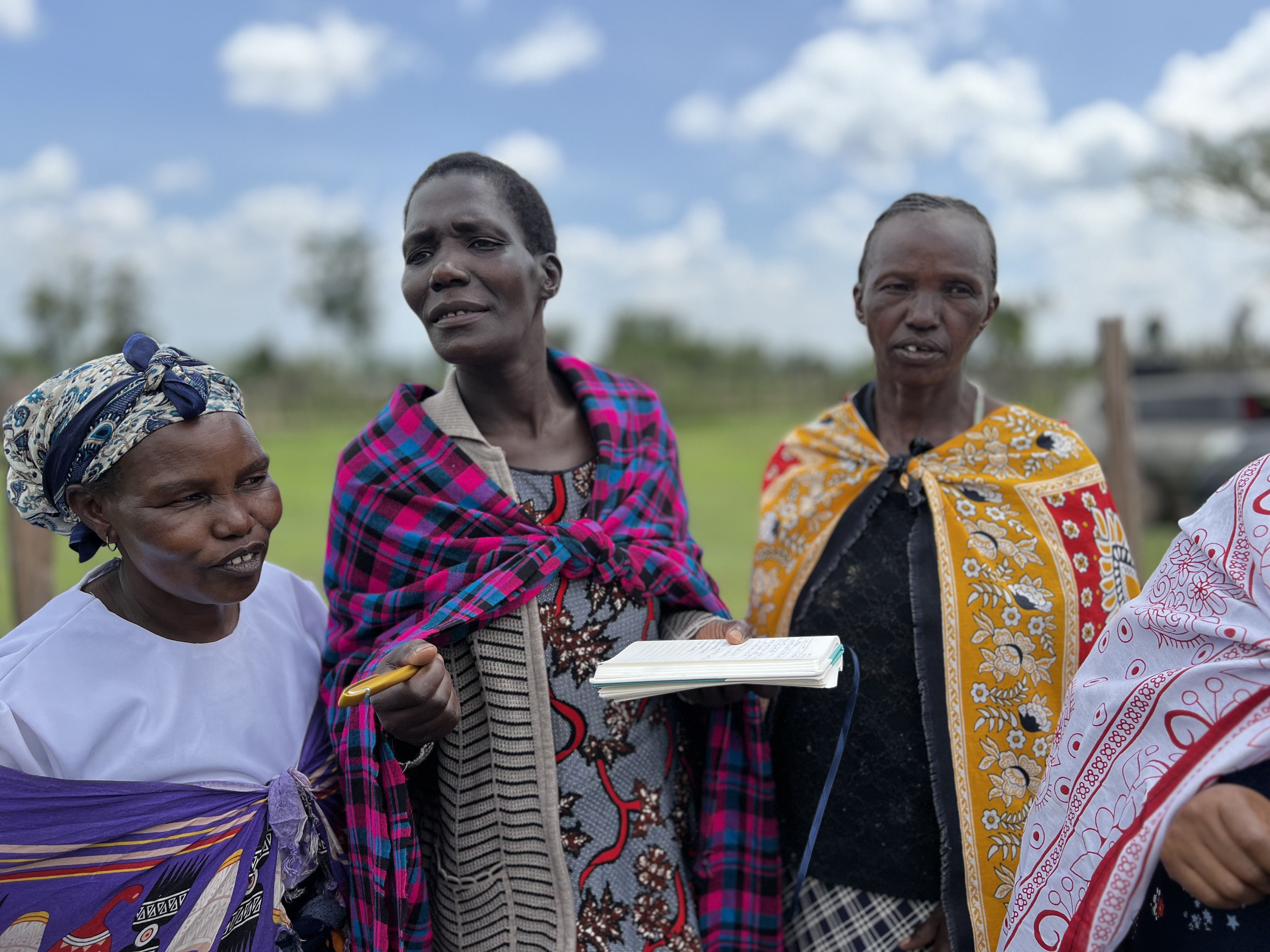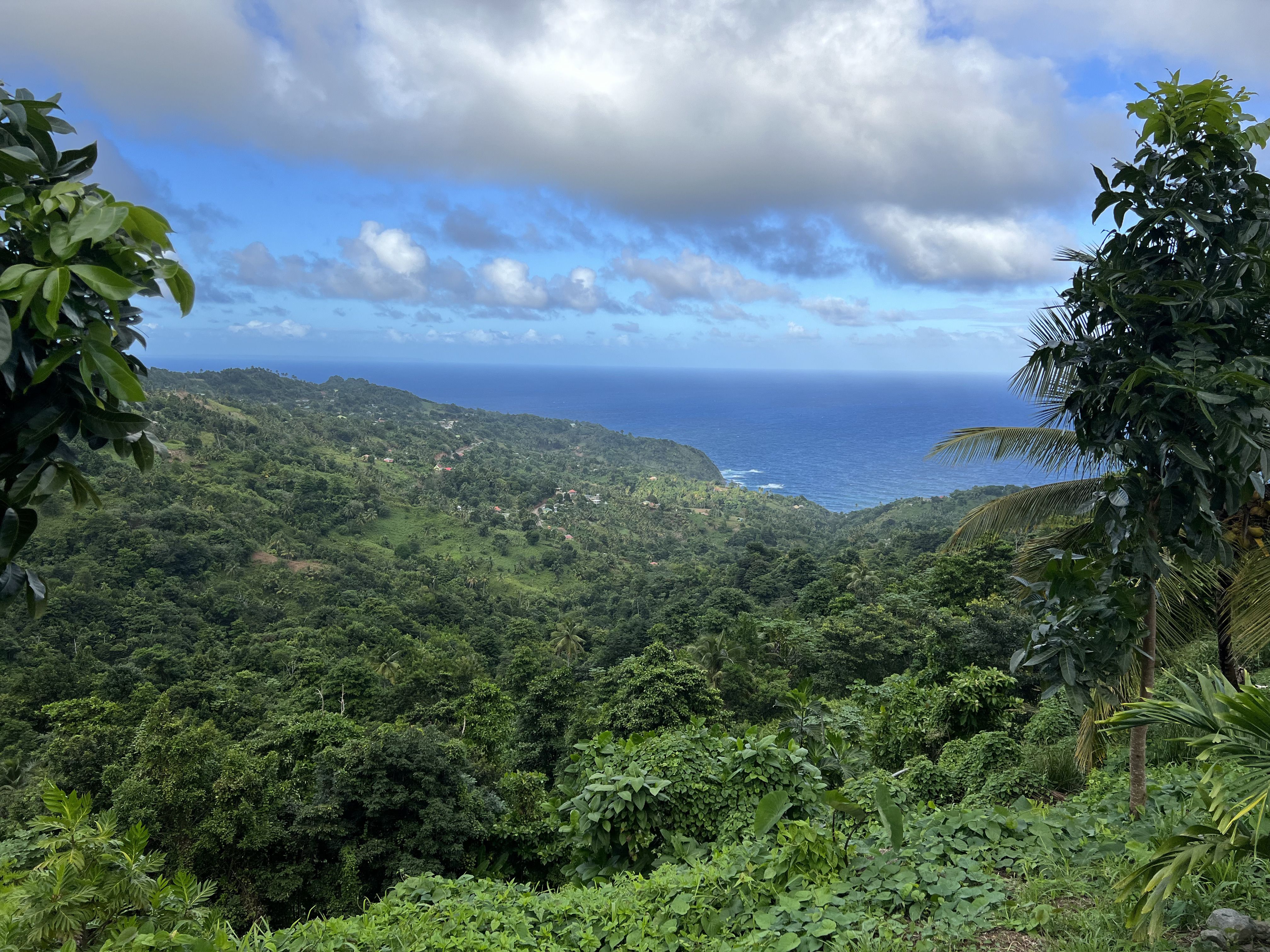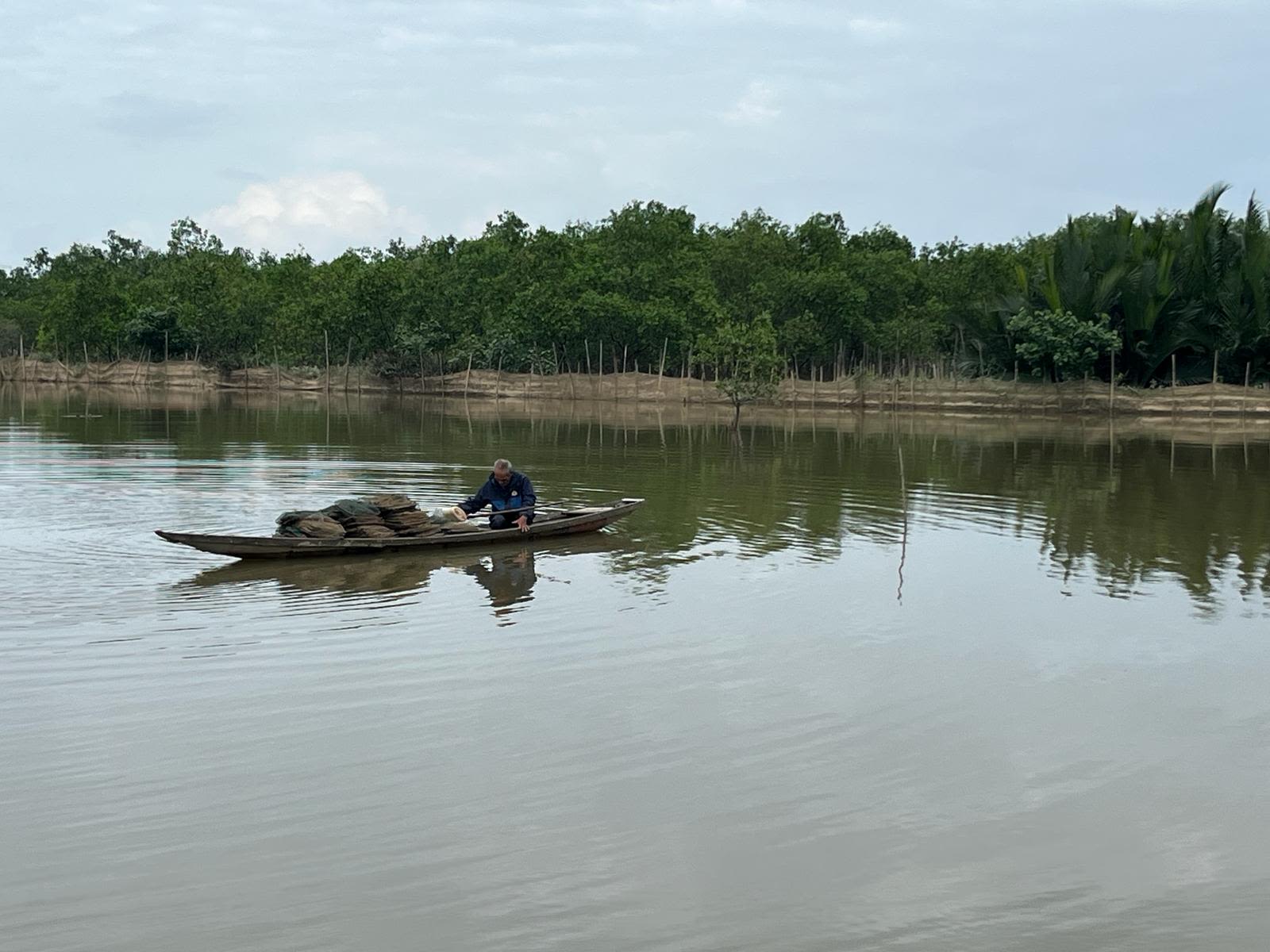Colombia's commitment to climate action
Empowering Indigenous Peoples’, Afro–descendant and campesino communities
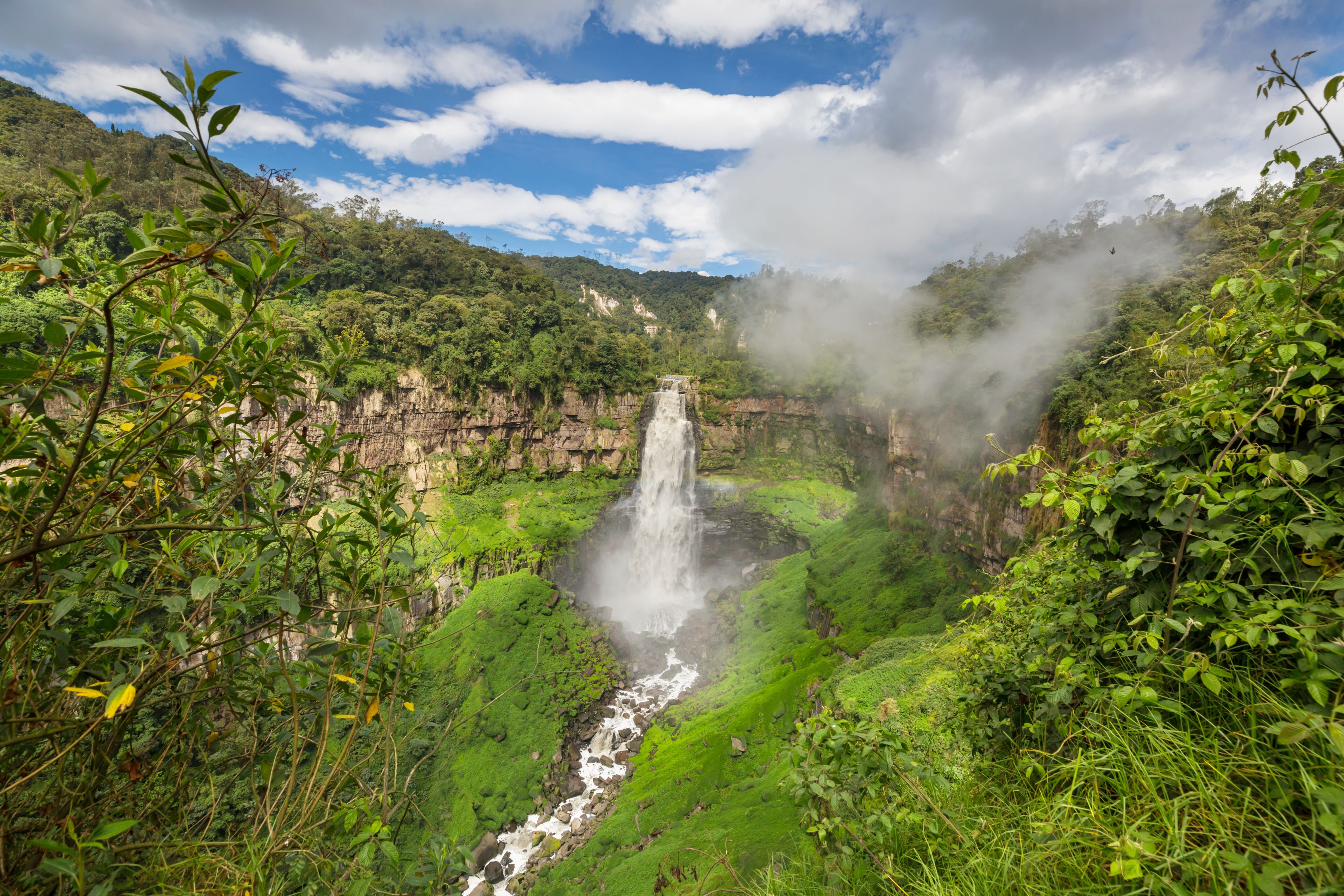
Colombia is among the top megadiverse countries, but more than 50% of its national territory is degraded. Moreover, in Colombia, 170 municipalities are affected by armed conflict and at the same time hold 70% of the country’s forests. Therefore, efforts to stop deforestation need to be focused in these areas through immediate and direct support at the community level. The role of Indigenous Peoples, Afro-descendant and campesino communities is essential to fulfill and monitor Colombia’s national targets on biodiversity conservation and climate change mitigation. This includes recognizing the role of Indigenous peoples in meeting the country’s Nationally Determined Contributions (NDC) particularly in the agriculture, forestry, and land use sectors, as well as implementing nature-based solutions (NBS), to reduce deforestation and restore, conserve, and manage its ecosystems sustainably.
With support from the Climate Promise, Colombia launched a first call for proposals in 2023 for grants to support Indigenous and local community-led projects. 8 grantees were awarded approximately USD 20,000 each in 4 priority regions: Nariño, Caquetá, Putumayo, and Guaviare. These regions were strategically selected because they are both deforestation frontiers and post-conflict zones but they also serve as strategic ecosystems for protecting environmental services like water and are particularly vulnerable to climate change. During the launch event for the grants, Maria Tereza Becerra, Director of International Affairs for the Ministry of Environment (MinAmbiente), explained that this initiative is aligned with the government’s agenda to position Colombia as a “world power for life’’ (Colombia potencia mundial de la vida), prioritizing nature conservation.
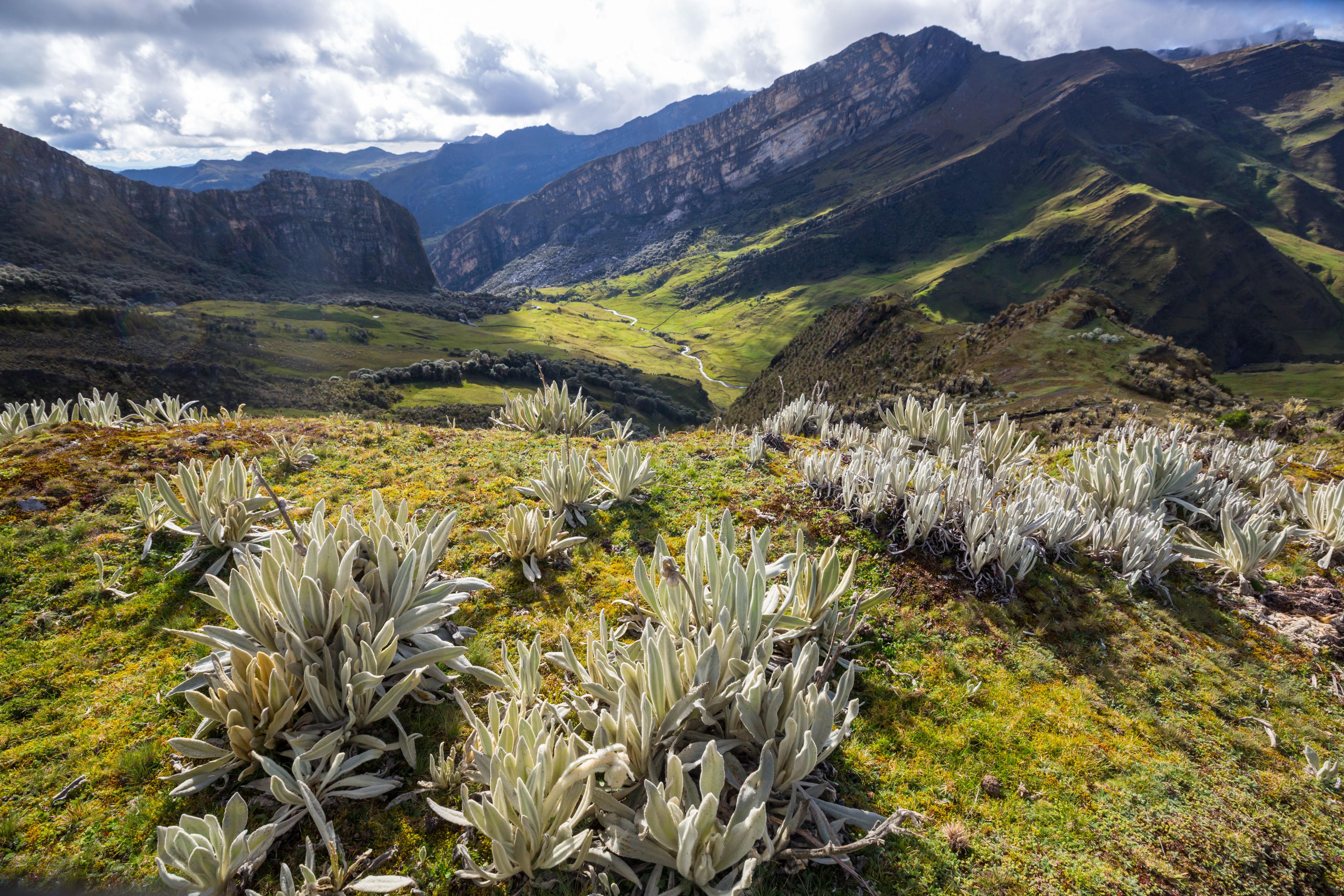
The Grantees
The community-level grants help to fulfill the need for more money to be directed to Indigenous Peoples, Afro-descendant and campesino communities in these priority and “at-risk” regions. Overall, the grants aim to support alternatives to deforestation for communities affected by violence while strongly supporting participation and knowledge exchange for women and youth, recognizing and utlizing ancestral knowledge for conservation, and improving agro-ecological practices that protect nature and culture.
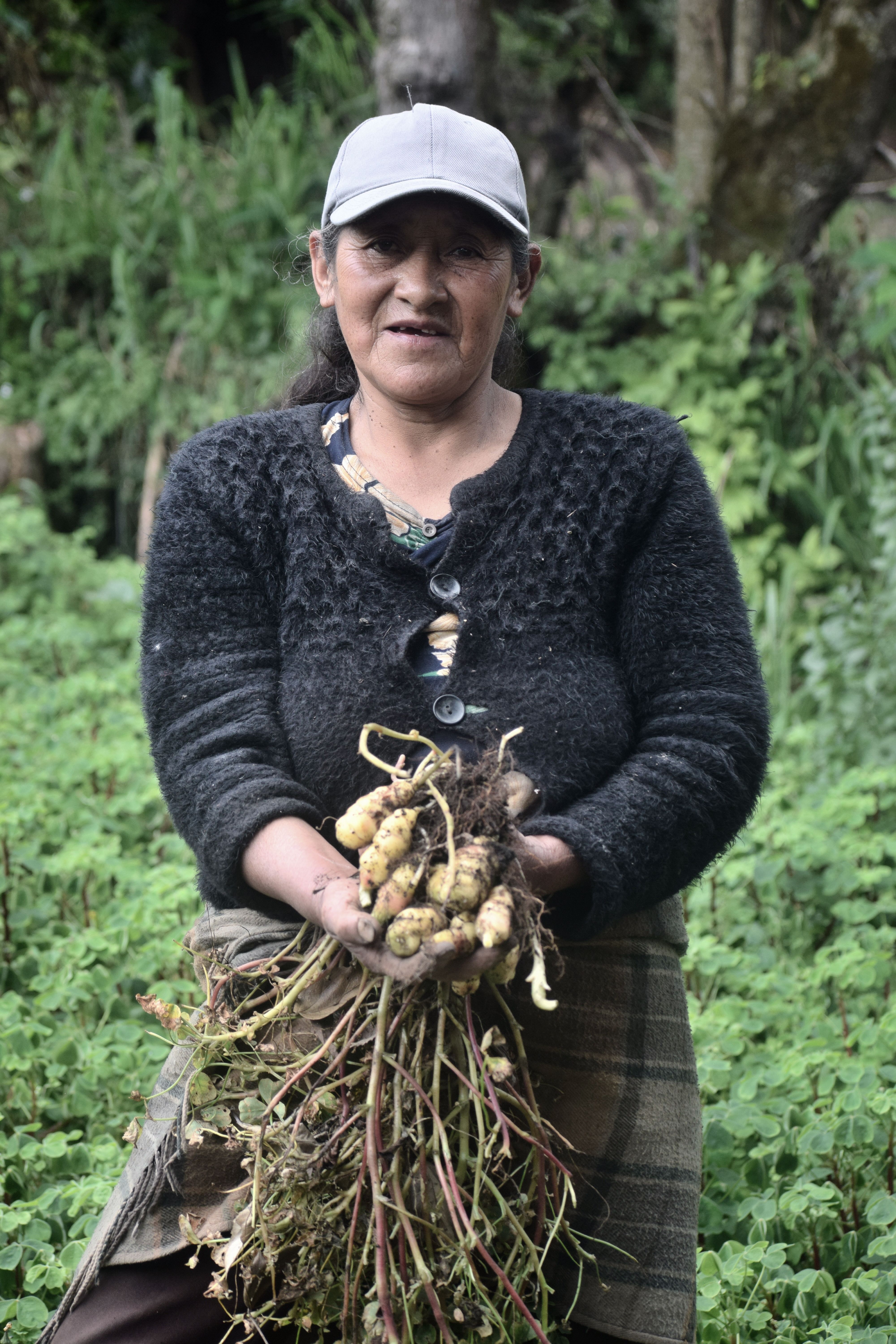
For example, in Nariño, the Asociación Indígena Agroecológica Reviviendo el Verde de Nuestros Campos “Pumamaki” is restoring biological corridors in the Muellamues Indigenous community in the Andes, which are experiencing increased deforestation, biodiversity loss, pollution from toxic agrochemicals, loss of ancestral knowledge, and health risks due to water contamination and lower nutrition. In response, this project is supporting the community to restore biological corridors and strengthen agroecological production systems, based on traditional knowledge, integrating environmental, social, cultural and economic priorities to preserve food traditions, soil conservation, genetic diversity of crops, biodiversity conservation, and ecosystem services.
Cultivating native species: Sinchimaki Asosinchi Association's Nursery in Nariño, Colombia. Photo: UNDP Colombia
Cultivating native species: Sinchimaki Asosinchi Association's Nursery in Nariño, Colombia. Photo: UNDP Colombia
In Caquetá, the Resguardo de la comunidad indígena Huitoto El Quince is building a seed bank to preserve the land, promote ethno-education, and empower Huitoto Indigenous women as stewards of the forests and biodiversity. The seed bank directly responds to the goals and objectives of the community’s self-determined Planes de Vida (“Life Plans”), aiming to protect their culture and ancestral values, and placing women at the center of these plans, recognizing their role in strengthening the family as a unit of cultural development.
In Putumayo, Fundación Uaman Luar is developing a Cultural, Environmental and Ancestral Management Plan for the Tortuga Páramo with the community of the Kamëntŝá inga Indigenous Reservation of San Francisco. This grant supports the consolidation of a community-led, socio-environmental plan including the first cultural meeting to map and protect sacred sites. This will help the Kamëntŝá inga indigenous community to strengthen the environmental governance of the territory, continue their traditional customs and, in turn, ensure the conservation and protection of the biodiversity of the Andean-Amazonian ecosystem.
Women's Gathering: Kamentsa Inga Community Members in San Francisco Municipality, Alto Putumayo, Putumayo. The women participate in a knowledge-sharing session on the use of medicinal plants. Photo: UNDP Colombia
Women's Gathering: Kamentsa Inga Community Members in San Francisco Municipality, Alto Putumayo, Putumayo. The women participate in a knowledge-sharing session on the use of medicinal plants. Photo: UNDP Colombia
In Guaviare, Resguardo indígena Puinave y Curripaco de Morichal Viejo, Santa Rosa, Cerro Cucuy, Santa Cruz, Caño Danta y demás familias is improving agroecology systems in 9 hectares of secondary forests in the Loma Linda indigenous community, building on the ancestral knowledge of Indigenous women. These agroecology systems will help protect the ecosystem and strengthen the community’s climate adaptation while also improving the community governance and inclusion of women and youth in conservation and sustainable agriculture activities.
Sacred site for the Indigenous community of Gran Tescual: Playas waterfall in El Verde village, Monompamba District, Puerres Municipality, Nariño (Colombia).
Sacred site for the Indigenous community of Gran Tescual: Playas waterfall in El Verde village, Monompamba District, Puerres Municipality, Nariño (Colombia).
Selecting the Grantees: Inclusion & Aligned Priorities
Colombia designed a participatory process to align these grants with the needs and expectations of national Indigenous Peoples' organizations and the government with a portfolio approach in synergy with BESNET (who is financing 3 additional grants), UN-REDD, and Natural Paz. UNDP Colombia also facilitated an inclusive process to select the grantees by convening a diverse selection committee that includes Indigenous Peoples representatives. The call for proposals for the grants was accessible to a diverse range of IP organizations through support to communities during the application process, trainings for the selected grantees on monitoring and safeguards, and diverse communication channels to disseminate the opportunity.
In the next phase of the grants program in Colombia, half of the funds will be given to existing grantees to help them achieve greater impact and ensure the continuity of their projects and the rest will be awarded through a new call for proposals for new grantees which just closed on February 15 and which received over 400 proposals. This new call for proposals was open to campesinos and Afro descendants from different regions in Colombia, expanding the support to more communities to recognize and support their conservation work.
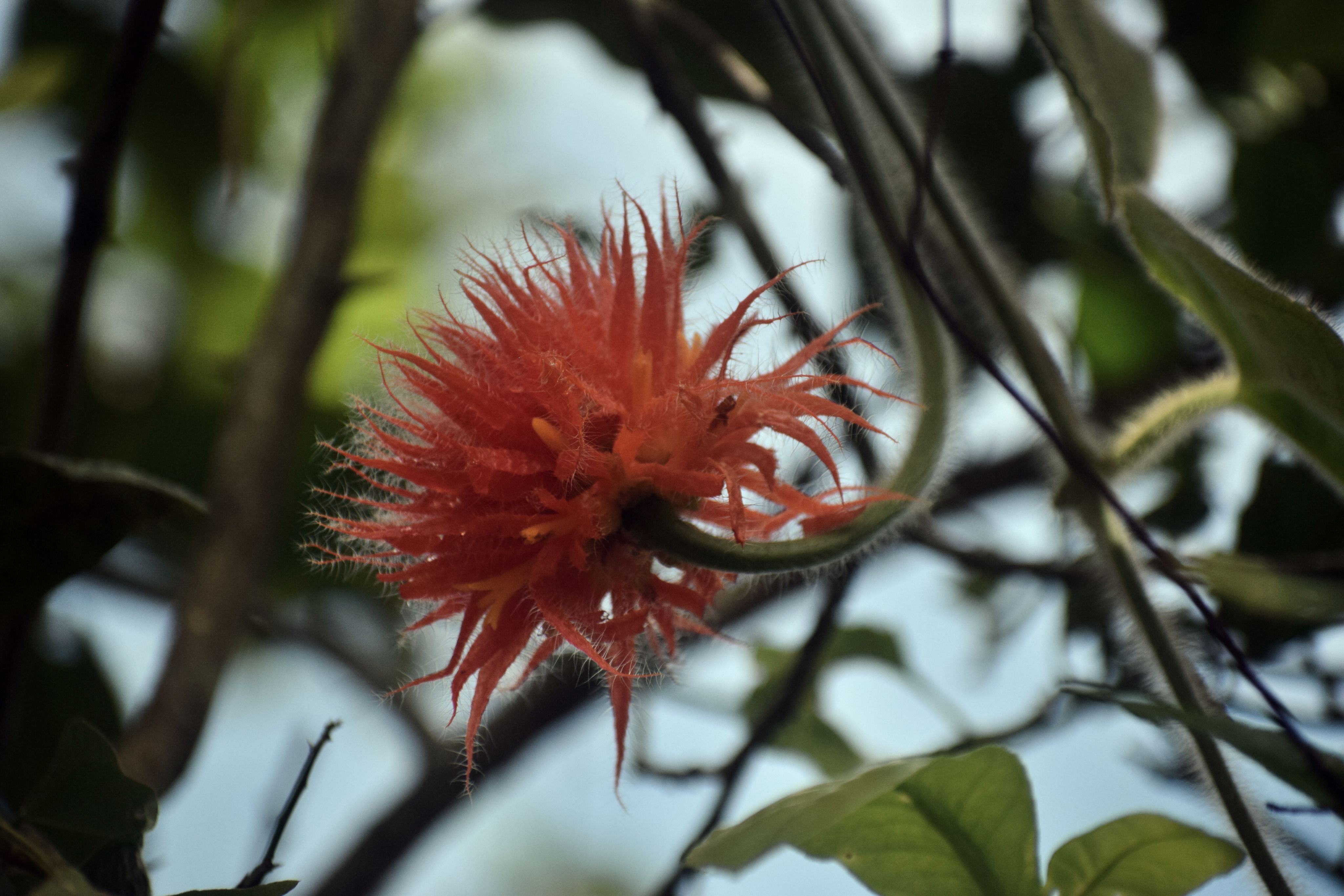
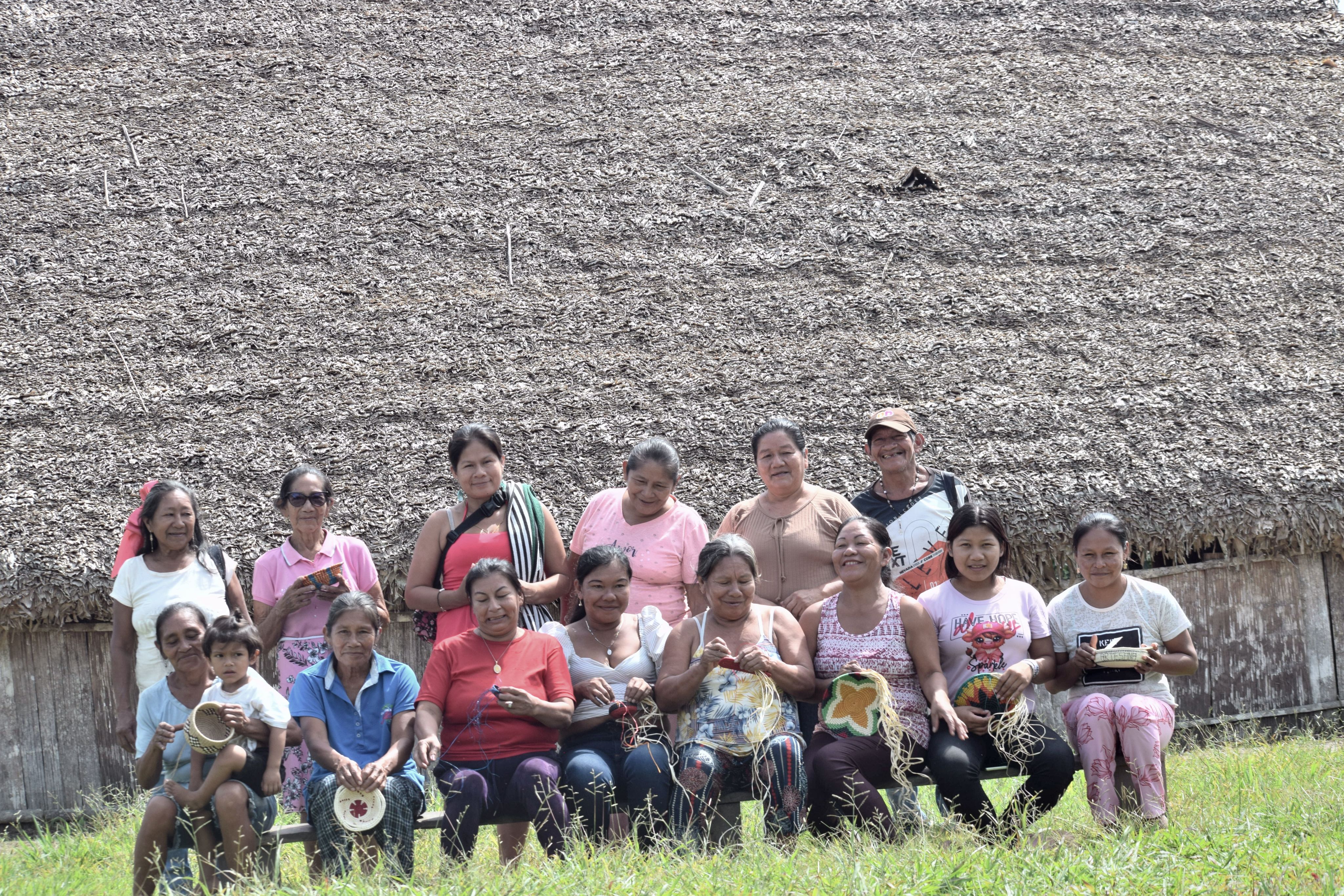
UN Disclaimer
The views expressed in this publication are those of the authors and do not necessarily represent
those of the United Nations, including the UN Development Programme, or UN Member States.
About UNDP’s Climate Promise
UNDP’s Climate Promise is the largest global offer on NDC support, covering over 120 countries and
territories, representing 80 percent of all developing countries globally – including 40 least developed
countries, 28 small island developing states, and 14 high emitters – to enhance their Nationally
Determined Contributions under the global Paris Agreement. Delivered in collaboration with a wide
variety of partners, it is the world’s largest offer of support for the enhancement of climate pledges.
Learn more at climatepromise.undp.org and follow at @UNDPClimate.
UNDP is the leading United Nations organization fighting to end the injustice of poverty, inequality, and
climate change. Working with our broad network of experts and partners in 170 countries, we help
nations to build integrated, lasting solutions for people and planet. Learn more at undp.org or follow at
@UNDP.

